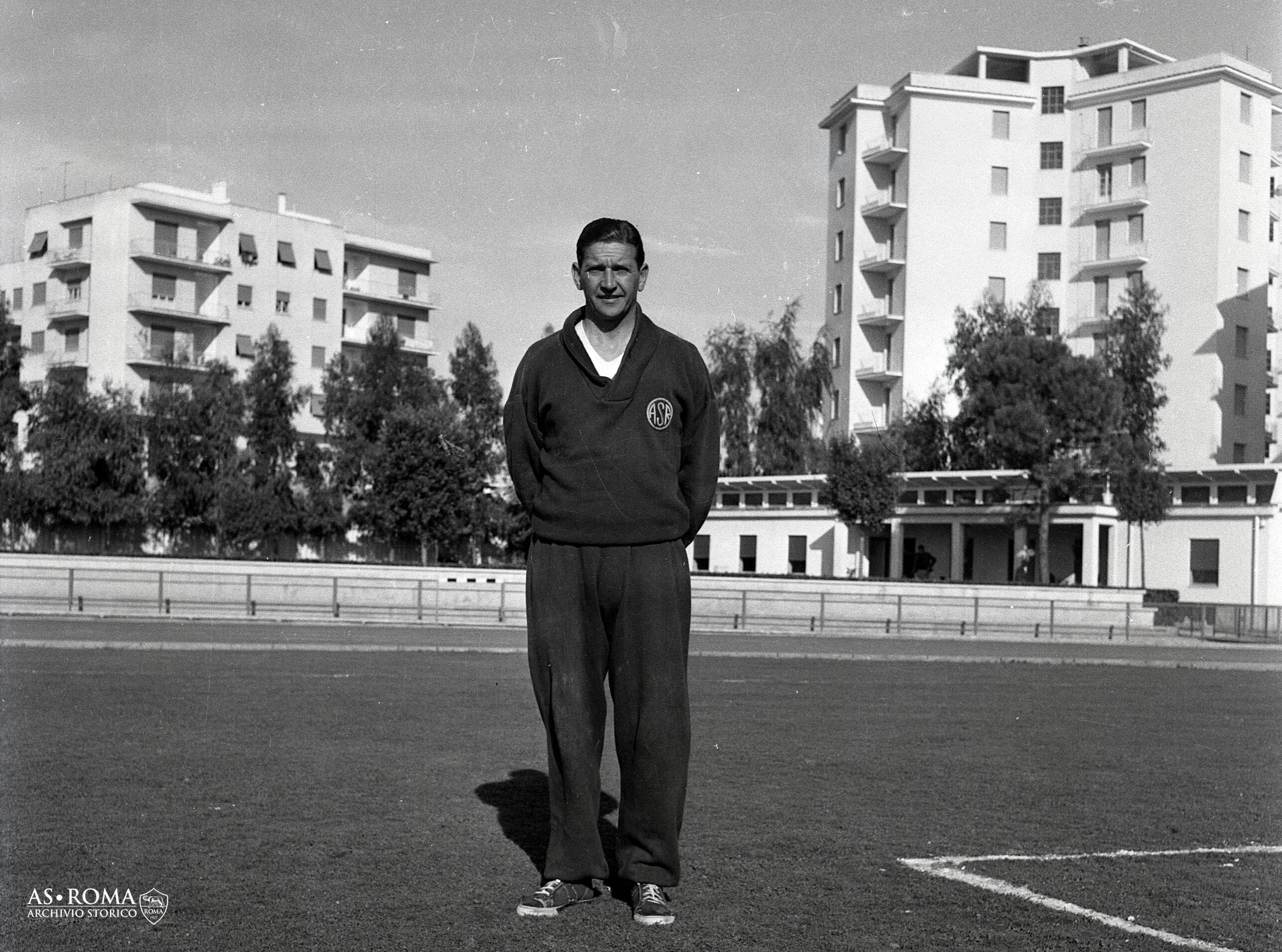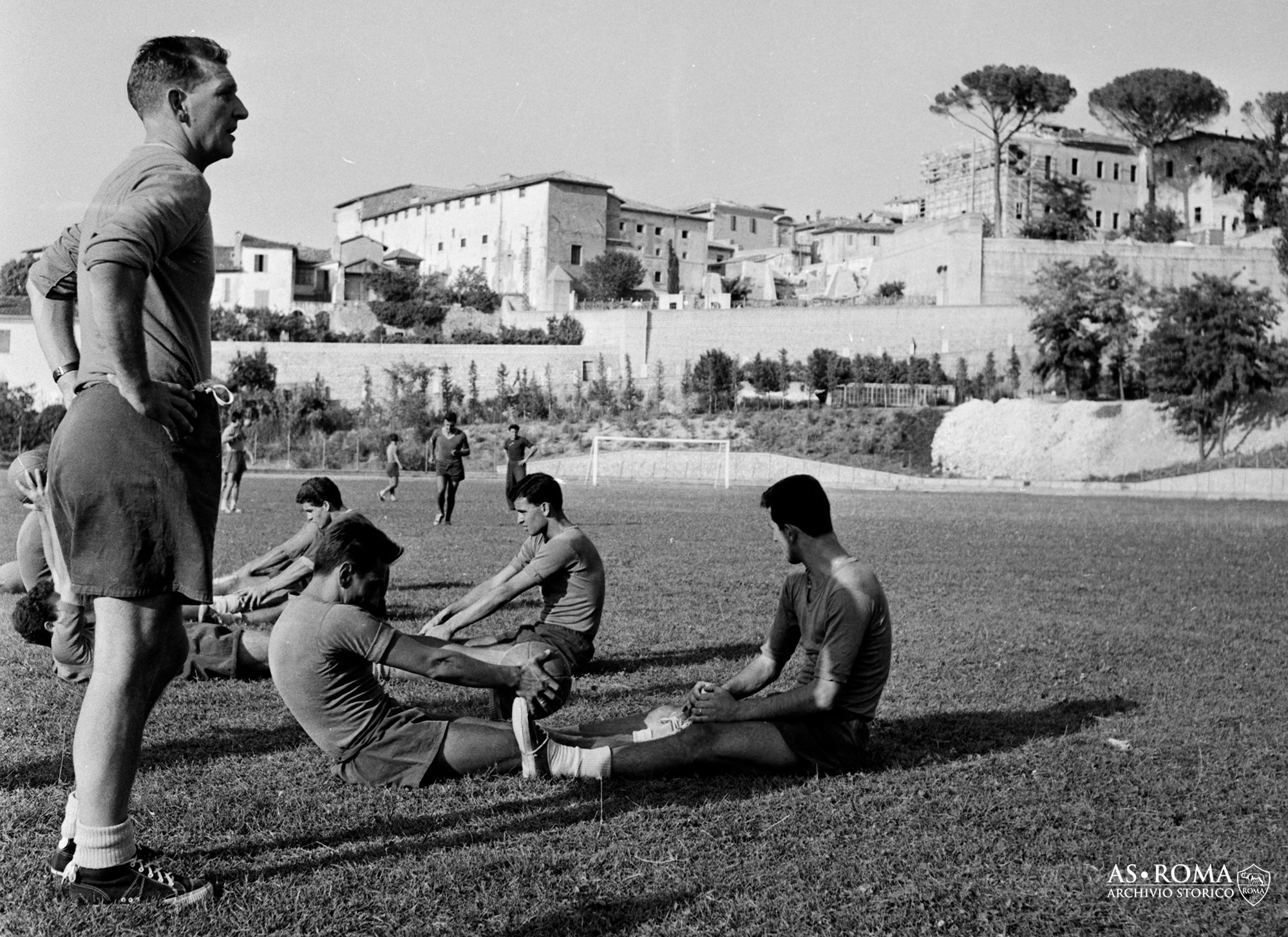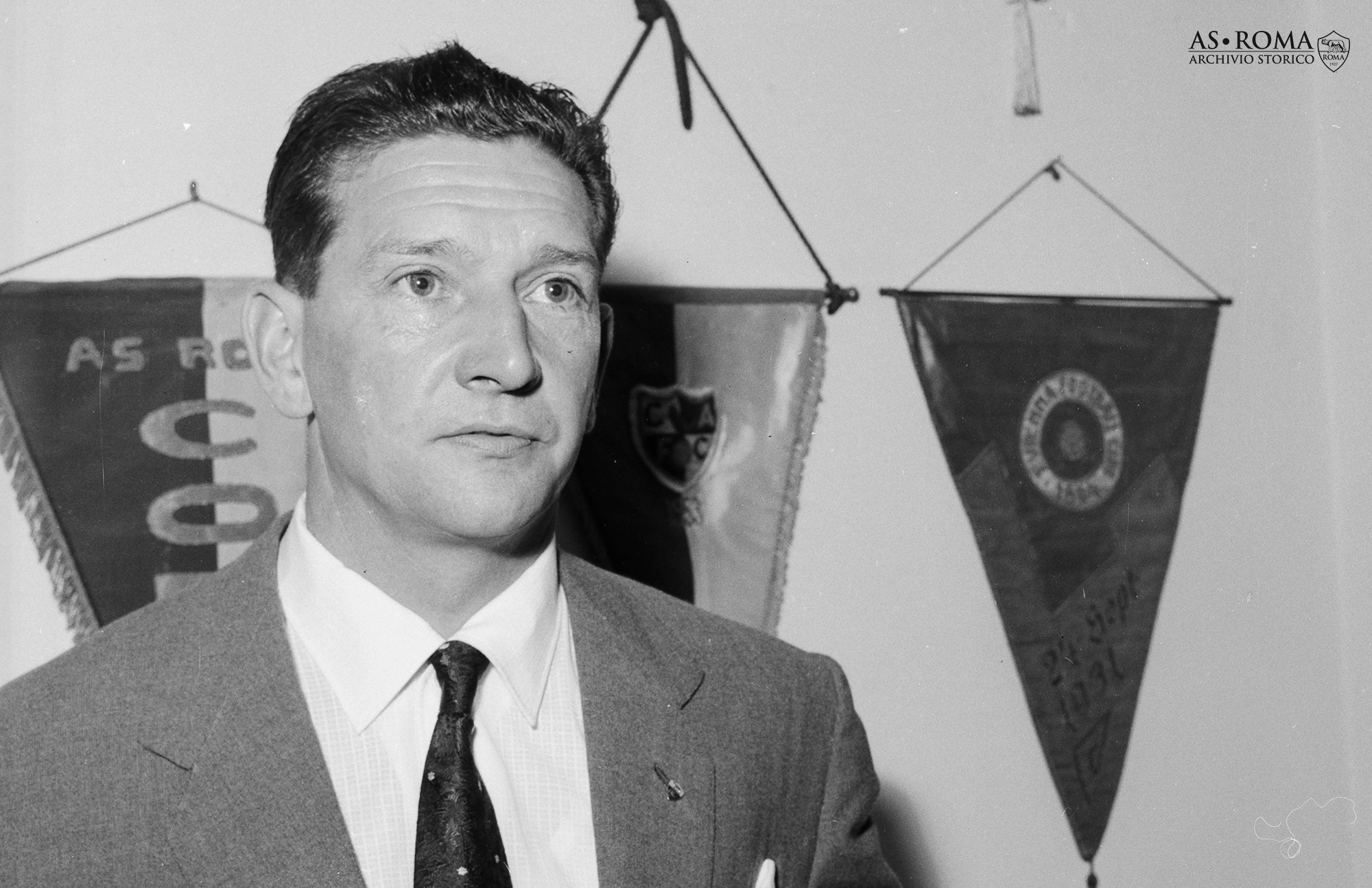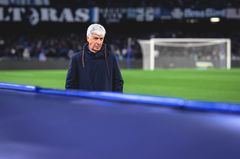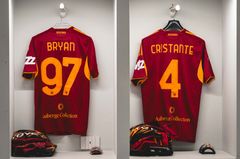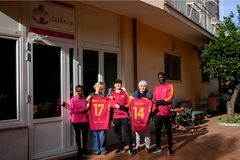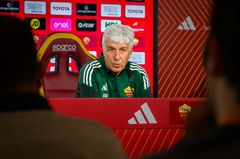
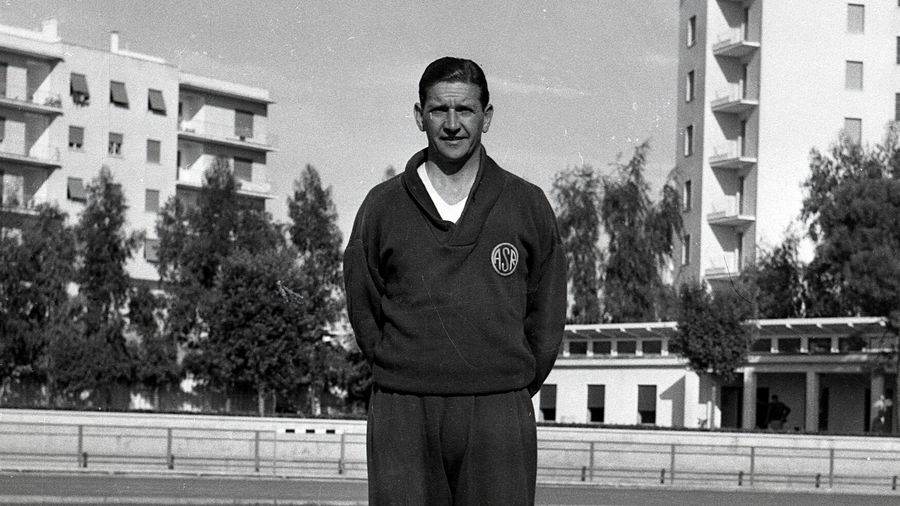
In Roma’s almost 94-year history, the club has had a total of four English coaches.
It is perhaps an overlooked element of the Giallorossi story – not least because all of them came in the first 30 years of the club’s existence.
William Garbutt – who also had a formative impact at Genoa and Athletic Club, among others – was the club’s first ever coach in 1927.
Herbert Burgess, who represented England as a player, was the second – arguably creating the first great Roma side, which finished second in Serie A in 1931.
Almost 20 years later, Jesse Carver – who reportedly turned down the England job when he eventually left Roma to return home - emulated that feat with a top-three finish in 1955.
On the 104th anniversary of his birth, we take a look back at the last of that quartet: Alec Stock, who perhaps endured rather than enjoyed a five-month spell in the Giallorossi dugout back in 1957.
According to Stock, he only heard about his impending move to the Italian capital via the back pages of Britain’s newspapers – who seemed to know the scoop before even he did.
Unfortunately for the West Country native, who was always regarded of one of Britain’s most upstanding ‘football men’, his stint in the dugout would end in similarly unusual circumstances.
Born 30 March 1917, in Somerset - a rural county to England’s south-west - Stock played as an inside-forward for Charlton, Queen’s Park Rangers and Yeovil Town either side of serving in the British army during the Second World War.
He went on to build a considerable reputation as a coach with both Yeovil and Leyton Orient, so much so that Arsenal came calling for his services in 1955.
As assistant to Tom Whittaker his stint with the Gunners would last just 53 days before he returned to Orient, and two years later he would be presented - somewhat out of the blue - with the opportunity to become the fourth British coach in Giallorossi history.
Stock later wrote in his book, Football Club Manager, that he only heard of Roma’s interest when reading the back pages of a newspaper during a family getaway between the end of the 1956-57 campaign and the start of the next season.
He explained: “The next development was a phone call from a person who apparently bought and sold fruit in London. He said he was a relation or friend of the Roma president, and bluntly asked me: ‘Have you accepted our offer?’
“I simply replied: ‘What offer?’ and the conversation ended.”
Eventually, Gigi Peronace - described by Stock as an “agent extraordinary, a splendid fellow” - brokered the deal and the Englishman signed a two-year deal in the belief that “experience in Italy would make me a better manager”.
The Giallorossi had finished fourth bottom the previous term and were in need of fresh ideas and, perhaps with memories of Carver still fresh, the return of a strong-man ‘manager’ to whip a complacent squad into shape – something the English game, where Stock’s reputation was high, was still believed to produce in abundance.
For Stock, ironically, the considerations were somewhat similar. In the wake of England’s seismic 6-3 loss in the ‘Match of the Century’ against Hungary at Wembley in 1953, his own nation were in something of an identity crisis – after decades convinced of their own tactical and technical superiority, suddenly it seemed perhaps the continent had surpassed them when it came to the way the beautiful game should be played.
Stock, seeing the big jobs at English clubs were invariably going to ex-England internationals with vast reputations, quickly saw an overseas deployment as a way to elevate his CV in a way his playing career could not.
“I decided that unless I took a good, long look at what Europe had to offer, I would soon be at a big disadvantage,” he noted.
“Roma offered me an opportunity to widen my range … and so, with [them] offering to give my knowledge a new dimension and to [also] pay me handsomely for the privilege, I decided to accept their offer.”
Roma’s new 40-year-old coach did have a language barrier to overcome as he looked to get his philosophy across to his players and was given an interpreter to help with his communication - albeit a very junior appointee.
Stock described him as “a 16-year-old Italian who had picked up his English in Wales.”
He was, in fact, the well-educated son of club member Romolo Raggi - although that's not to say his English was quite at the level Stock required.
But things started well and after two draws from their opening Serie A fixtures, Stock’s side picked up their first victory of the season on Matchday 3 - dismissing AC Padova 3-1 thanks to goals from Dino Da Costa, Luigi Giuliano and Giuseppe Secchi.
Two more wins and a draw followed before Roma tasted their first - and only - defeat under Stock to Fiorentina (who had reached the European Cup final a year earlier), but that disappointment was emphatically put to bed a week later.
Stock guided Roma to a handsome 3-0 humbling of Lazio in the Derby della Capitale, moving fourth in the process as goals from Severino Lojodice and Alcides Ghiggia sandwiched another Da Costa strike.
After 11 games in charge, Stock’s record read well (W4, D6, L1), but internal conflict was rife and ultimately brought a premature end to the relationship.
An early disagreement with the club’s recently-appointed technical director, Antonio Busini, over Stock’s faith in 20-year-old full-back Giacomo Losi (who would eventually become a club legend), was just a precursor of trouble ahead.
An infamous incident at Rome’s Termini train station prior to a big November game away to Napoli proved the final straw, with Stock suggesting that he was deliberately given the wrong train time as elements within the club sought ways to undermine him.
Stock, who portrays himself in the relevant chapter of his book as something of a fish out of water - surprised by the rampant subterfuge, intrigue and influence-peddling going on around him within the club, while simultaneously utterly unwilling to get involved with it all – realised the situation was untenable, especially as the train incident was used as a reason for club officials to make changes to his side for the game (which finished 0-0).
There was ultimately no going back for either party, even if Roma were fifth at the time.
Stock would go on to describe his time at Roma as “hard, intensely interesting, painful, confusing and, finally, bitter.”
Stock’s youngest daughter Sarah Hickson, however, says her father left Italy with far more love for its culture and cuisine than any resentment over how his time with the Giallorossi came to an end.
“The impressions I had is that both mum and dad loved being there,” Sarah told asroma.com over email from her home in Wimborne, Dorset.
“Mum – a farmer’s daughter - used to tell me about how she felt when she first saw orange trees in bloom and fruit at the same time, and it certainly left dad with a lifelong love of Italian culture, especially the food and wine.
“He loved to tell the waiters in our favourite trattoria [in Dorset] about his time there, and he always kept an eye on the results as well.”
Sarah made a pilgrimage to Rome a few years ago, although she was unable to make it to the Stadio Olimpico. It’s in her plans to do so once the “madness” of the coronavirus pandemic sees travel begin to open up again.
She said: “I did go to Rome five years ago, and fell in love with the city. My aunt was able to tell me the approximate address of their flat [Stock described it as being behind the Vatican] so I was able to track the road down.
“I didn't make the stadium, but it’s on the list. My friend's sons are supporters so they have promised to take me to a match!”
If and when that happens, it goes without saying that Sarah and her friends will be proud guests of the club at the Stadio Olimpico.
It may have ended somewhat acrimoniously, but Stock (who went on to win the League Cup during a gloriously successful spell with Queen's Park Rangers, and reached the FA Cup final with Fulham) remains the last Englishman to take the reins at the Giallorossi – and, as such, continues to hold a significant place in the history of the club.

 Tickets
Tickets
 Shop
Shop













